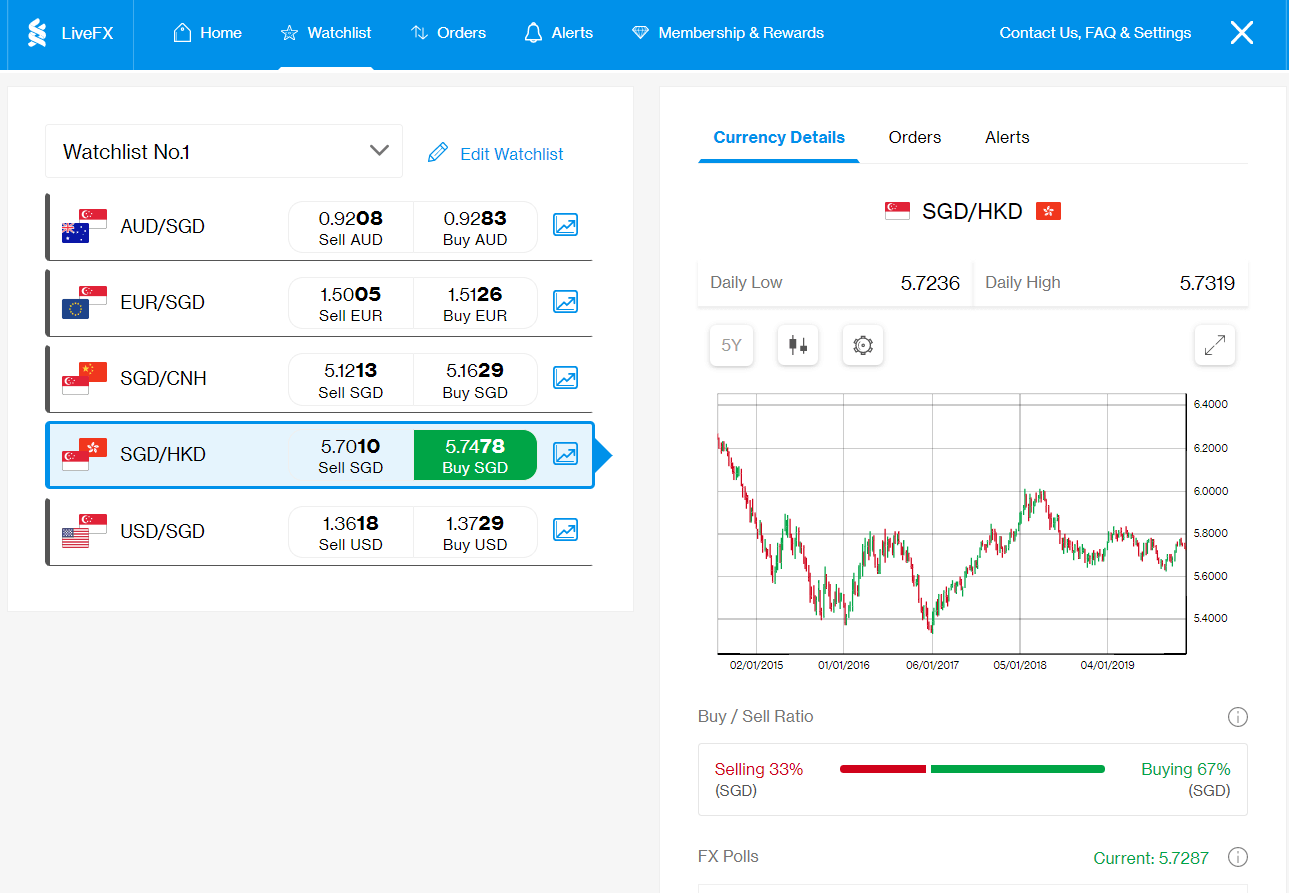Analysis of Private Market Investment Funds for Retail Investors in Singapore
Current Landscape and MAS Initiative
The Monetary Authority of Singapore (MAS) is exploring a significant shift in Singapore’s investment landscape by potentially widening access to private market investments for retail investors. Currently, these investment vehicles are primarily available to accredited investors, high-net-worth individuals, and family offices.
The proposed framework includes two potential structures:
- Direct funds – where fund managers invest directly into 20-30 private companies
- Long-term investment fund-of-funds (LIFF) – which invests in 10-20 fund managers, each investing in 20-30 companies, potentially providing exposure to up to 600 private companies
Characteristics of Private Market Investments
Private market investments encompass several asset classes:
- Private equity (ownership stakes in unlisted companies)
- Private credit (loans to private companies from non-bank lenders)
- Private real estate projects/funds
- Infrastructure investments (transportation, utilities, energy)
- Natural resources (agriculture, farmland, timberland, water)
These investments share key characteristics:
- Lower volatility than the public market, as they aren’t marked-to-market daily
- Longer investment horizons (typically 10-12 years, up to 30 years for infrastructure)
- Limited liquidity compared to public markets
- Potentially higher fees, especially in fund-of-funds structures with dual fee layers
Potential Impact on Singapore’s Investment Landscape
Benefits for Retail Investors
- Portfolio Diversification Private markets typically have low correlation with public markets, potentially reducing overall portfolio volatility and risk when combined with traditional investments.
- Access to Growth Opportunities Retail investors would gain exposure to previously inaccessible private companies (like Singapore’s Carro and Carouselle, potentially capturing value creation before companies go public.
- Reduced Emotional Decision-Making. The illiquid nature of these investments may protect investors from making hasty decisions during market volatility, like the sharp April 2025 market sell-off mentioned in the article.
- Broader Investment Universe For every listed company earning over $100 million in revenue, there are approximately nine private companies, representing a vast expansion of investment opportunities.
Challenges and Considerations
- Education Ga:p There’s a significant need for investor education. As Adeline Tan from Mercer noted, investors aren’t ready to select private market funds independently and will require substantial guidance.
- Financial Advisory Readiness Bank relationship managers will need training to understand and explain these complex investments to retail investors.
- Liquidity Constraints The Yale University example highlights how even sophisticated institutions can face challenges when liquidating private market investments, often requiring sales at discounts in secondary markets.
- Economic Vulnerability Despite lower reported volatility, private markets aren’t immune to economic downturns. During protracted economic weakness, they face similar challenges to public markets, including potential higher default rates in private credit.
- Fee Considerations Higher fee structures, particularly in fund-of-funds arrangements, will impact net returns and require investors to carefully evaluate them.
Broader Economic Impact on Singapore
Strengthening Singapore’s Position as a Financial Hub
- Innovation in Financial Products. This initiative aligns with Singapore’s ongoing efforts to innovate in financial services and maintain its competitive edge as a global financial hub.
- Capital Formation for Private Companies. Increased retail participation could expand the capital pool available to Singapore-based private companies, potentially supporting local entrepreneurship and business growth.
- Financial Inclusi: on Democratizing access to previously exclusive investment opportunities supports Singapore’s broader financial inclusion goals.
Potential Systemic Considerations
- Investor Protection Framework The MAS will need to balance expanding access with appropriate safeguards, given the complexity and risks of these investments.
- Long-term Financial Planning Impact:t These vehicles could influence how Singaporeans approach retirement planning, complementing CPF and other traditional savings vehicles.
- Market Development A robust retail private market ecosystem could foster the development of secondary markets and supporting services, further enhancing Singapore’s financial infrastructure.
Conclusion
The proposed framework for retail private market investment funds represents a significant evolution in Singapore’s investment landscape. While offering promising diversification benefits and access to previously restricted opportunities, successful implementation will require substantial investor education, advisor training, and appropriate regulatory guardrails.
The MAS’s consultation period (ending May 26) will be crucial in shaping a framework that balances expanded access with necessary investor protections. For retail investors, these developments warrant close attention but also careful consideration of their investment objectives, time horizons, and liquidity needs before participating in this new asset class.
Private Market Investments: Consolidating Singapore’s Position as a Financial Hub
Strategic Significance for Singapore’s Financial Ecosystem
The Monetary Authority of Singapore’s (MAS) initiative to expand retail investor access to private market investments represents a strategic evolution that could significantly strengthen Singapore’s position as a leading global financial centre. This move aligns with broader national objectives to develop a sophisticated, comprehensive financial ecosystem that serves various stakeholders while maintaining a competitive advantage in an increasingly complex global financial landscape.
Enhancing Singapore’s Financial Hub Status
1. Diversifying Financial Product Offerings
Singapore’s financial sector has historically built its reputation on strong banking foundations, wealth management excellence, and robust capital markets. The introduction of retail-accessible private market investments represents a significant expansion of Singapore’s financial product spectrum:
- Completing the Investment Ecosystem: By bridging the gap between traditional retail investment products and institutional-grade alternative investments, Singapore creates a more comprehensive financial marketplace.
- Accommodating Varying Risk Profiles: This initiative allows Singapore’s financial system to serve investors across the entire risk-return spectrum, from conservative fixed income to higher-risk/higher-return private equity.
- Product Innovation Leadership: First-mover advantage in retail private market access could position Singapore as an innovator in democratising alternative investments, a trend gaining momentum globally.
2. Attracting Global Fund Managers and Capital
The framework could catalyse a significant influx of capital and talent:
- Fund Manager Concentration: Global private market specialists like Hamilton Lane (mentioned in the article) and others may expand their Singapore operations or establish new regional headquarters to tap into this expanded investor base.
- Increased Assets Under Management (AUM): Opening private markets to retail investors could substantially increase Singapore’s total AUM, a key metric for financial hub status.
- Talent Magnetism: The development of retail private market vehicles necessitates specialised expertise in structuring, compliance, and distribution, potentially attracting high-calibre financial professionals to Singapore.
3. Strengthening Singapore’s Value Proposition in Asset Management
This initiative enhances Singapore’s competitive positioning:
- Differentiation from Regional Competitors: Hong Kong, Tokyo, and emerging centres like Shanghai have their own financial hub ambitions. Singapore’s expansion into retail private markets provides differentiation.
- Alignment with Global Trends: As traditional public markets become increasingly efficient and accessible, value creation has shifted toward private markets. Singapore’s move aligns with this structural evolution.
- Regional Gateway for Private Capital: The framework positions Singapore as the natural entry point for global investors seeking private market exposure in Southeast Asia and broader Asia-Pacific opportunities.
Catalysing Broader Financial Ecosystem Development
1. Creating Specialised Support Services
The development of retail private market funds will necessitate and stimulate growth in ancillary services:
- Specialised Valuation Services: Unlike public markets with daily pricing, private assets require sophisticated valuation frameworks and expertise.
- Private Market Analytics Capabilities: Firms specialising in private company data, benchmarking, and analytics may establish or expand operations in Singapore.
- Education and Training Programs: Universities and professional bodies will likely develop specialised curricula that address private markets, creating a virtuous cycle of talent development.
- Legal and Compliance Expertise: The complex structuring of these funds will drive demand for specialised legal and compliance professionals focused on private market regulations.
2. Fostering Secondary Market Development
Private market investments’ inherent illiquidity presents both a challenge and an opportunity:
- Secondary Market Infrastructure: A robust retail private market ecosystem could accelerate the development of secondary trading platforms and market-makers for private assets in Singapore.
- Liquidity Solutions Innovation: Financial institutions may develop innovative products like NAV-based lending against private market holdings or structured liquidity solutions.
- Private Market Exchange Potential: In the longer term, Singapore could establish formal exchanges for private assets, furthering its financial infrastructure advantage.
3. Strengthening the Funding Ecosystem for Private Companies
The initiative creates a more complete capital formation landscape:
- Bridging Funding Gaps: Expanded access to retail capital could help address the Series B/C funding gap often faced by growing companies in Singapore and Southeast Asia.
- Supporting Singapore’s Innovation Economy: Technology startups and other innovative enterprises could benefit from more diverse funding sources throughout their growth cycle.
- IPO Alternative: For some companies, private market capital could provide an alternative to public listings, allowing them to scale while remaining private longer.
Macroeconomic and Strategic Implications
1. Economic Resilience Through Diversification
Private market access contributes to Singapore’s economic stability:
- Reduced Dependence on Traditional Banking: Expanding the role of capital markets, including private markets, reduces Singapore’s economic dependence on traditional banking, enhancing systemic resilience.
- Counter-Cyclical Investment Options: Private markets can sometimes perform differently from public markets during economic cycles, potentially providing stabilising effects.
- Long-Term Capital Formation: The long-term nature of private market investments aligns with Singapore’s focus on sustainable economic development and planning.
2. Enhancing Singapore’s Strategic Economic Position
The framework advances Singapore’s broader economic objectives:
- Regional Financial Leadership: As ASEAN economies continue developing, Singapore strengthens its position as the financial nerve centre connecting global capital with regional opportunities.
- Capital Repatriation Potential: Singaporean retail capital that might otherwise flow to overseas financial centres for alternative investments could remain within the domestic financial system.
- Supporting Economic Transformation: Private markets often focus on emerging sectors and technologies, aligning with Singapore’s economic transformation towards high-value industries.
3. Regulatory Leadership and Standards Setting
The initiative positions Singapore as a regulatory innovator:
- Pioneering Balanced Regulation: Successfully implementing retail access to private markets requires sophisticated regulation that protects investors while enabling innovation, showcasing Singapore’s regulatory capabilities.
- Regional Regulatory Influence: Singapore’s framework could become a template for other Asian jurisdictions considering similar initiatives.
- Global Standards Contribution: Singapore’s approach could inform global best practices for democratising private market access.
Implementation Challenges and Considerations
1. Investor Protection Mechanisms
The framework’s success depends on robust safeguards:
- Suitability Requirements: Balancing accessibility with appropriate investor qualification criteria remains challenging.
- Transparency Standards: Developing disclosure requirements that provide meaningful information without overburdening fund managers requires careful calibration.
- Educational Infrastructure: As noted in the article, significant investment in investor education is necessary for successful implementation.
2. Operational and Technical Infrastructure
Several technical challenges must be addressed:
- Technology Platforms: Developing systems for subscription, reporting, and potentially secondary trading of private market interests.
- Fee Structure Optimisation: Finding fee models that compensate managers fairly while delivering value to retail investors.
- Integration with Existing Financial Infrastructure: Ensuring compatibility with Singapore’s current investment platforms and systems.
Conclusion: A Transformative Opportunity
The MAS’s initiative to expand private market access represents more than just a new investment vehicle for retail investors – it constitutes a strategic enhancement of Singapore’s financial ecosystem with far-reaching implications.
By successfully implementing this framework, Singapore can strengthen its competitive positioning as a comprehensive financial hub, bridge funding gaps in its innovation economy, develop sophisticated ancillary services, and reinforce its leadership in financial regulation and innovation.
The careful execution of this initiative, including addressing the substantial investor education needs identified in the article, could transform Singapore’s financial landscape while delivering on the dual objectives of expanding investment opportunities and consolidating Singapore’s status as a premier global financial centre for decades to come.
Singapore’s Strength in Fund Management and Banking Infrastructure: Enabling the Retail Investment Evolution
Singapore’s Financial Foundation of Excellence
Singapore has established itself as a premier financial hub in Asia through decades of strategic development of its fund management and banking sectors. This sophisticated infrastructure serves as the critical foundation that now enables the expansion of private market investments to retail investors.
Core Strengths in Fund Management
1. Robust Asset Management Ecosystem
Singapore hosts a thriving asset management industry characterised by:
- Scale and Diversity: As of the latest available data, Singapore’s assets under management (AUM) exceed S$4 trillion, with over 900 registered fund managers spanning traditional and alternative strategies.
- Full Spectrum Coverage: The ecosystem encompasses everything from massive global asset managers (BlackRock, Fidelity, Vanguard) to specialised boutique firms, hedge funds, and private equity players.
- Growing Alternative Investment Focus: Beyond traditional assets, Singapore has developed significant expertise in alternatives, including private equity, venture capital, real estate, and infrastructure, precisely the areas now potentially opening to retail investors.
2. Sophisticated Operational Infrastructure
Singapore’s fund management operations are supported by:
- Advanced Fund Administration: Specialised service providers offering NAV calculation, investor reporting, compliance, and other essential functions.
- Robust Custodian Networks: Global and regional custody banks providing asset safekeeping, corporate action processing, and settlement services.
- Fund Domiciliation Flexibility: Infrastructure supporting both Singapore-domiciled funds and efficient access to international fund structures (UCITS, Cayman, Luxembourg).
3. Regulatory Excellence for Fund Management
MAS has established a regulatory environment that balances oversight with innovation:
- Variable Capital Companies (VCC) Framework: Introduced in 2020, this corporate structure was explicitly designed for investment funds, offering operational flexibility and tax efficiencies.
- Fund Management Licensing Tiers: A graduated licensing system accommodating different fund manager types, from Registered Fund Management Companies (RFMCS) to holders of Capital Markets Services (CMS) licenses.
- Recognised Market Status: Singapore-regulated funds benefit from numerous mutual recognition arrangements with other jurisdictions, facilitating cross-border distribution.
Banking Infrastructure Advantages
1. World-Class Banking System
Singapore’s banking sector forms a crucial component of the investment ecosystem:
- Strong Domestic Banks: DBS, OCBC, and UOB form a robust backbone of well-capitalised, technologically advanced banking institutions.
- International Banking Presence: Nearly all central global banks maintain significant operations in Singapore, creating a competitive and sophisticated marketplace.
- Digital Banking Leadership: Singapore’s banks are at the forefront of digital transformation, with advanced mobile platforms, APIS, and fintech integration capabilities.
2. Wealth Management Excellence
Singapore has become Asia’s premier wealth management centre:
- Private Banking Expertise: Extensive experience serving high-net-worth and ultra-high-net-worth clients with sophisticated investment solutions.
- Advisory Capabilities: Deep bench of relationship managers and investment specialists with expertise across asset classes.
- Family Office Hub: Singapore’s stability, infrastructure, and regulatory environment are attracting a growing concentration of family offices.
3. Transaction and Payment Infrastructure
The financial plumbing supporting investments is highly advanced:
- Real-Time Gross Settlement: MAS Electronic Payment System (MEPS+) enables secure, immediate, high-value transfers between financial institutions.
- Fast and Secure Transfers (FAST): Instant retail payment infrastructure facilitating rapid movement of funds.
- PayNow and PayNow Corporate: Simplified fund transfers using just mobile numbers or business registration numbers.
- Singapore Financial Data Exchange (SGFinDex): Enabling consumers to access and share their financial information across different financial institutions securely.
How This Infrastructure Enables Retail Private Market Investments
This sophisticated ecosystem creates the essential foundation for democratising private market access:
1. Distribution Capabilities and Client Reach
Singapore’s existing infrastructure provides immediate channels to retail investors:
- Digital Investment Platforms: Banks and financial institutions have already developed robust online platforms that could be extended to offer private market funds.
- Financial Advisory Networks: Extensive networks of licensed financial advisors can be educated about private market opportunities to guide retail investors.
- Robo-Advisory Integration Potential: Singapore’s growing automated investment platforms could incorporate private market allocations into their portfolio recommendations.
2. Risk Management and Governance Framework
The robust infrastructure addresses key concerns in private market retail access:
- Custody Solutions: Singapore’s established custodians can adapt their processes to handle private market assets, ensuring proper segregation and safekeeping.
- Valuation Expertise: Fund administrators with valuation capabilities can apply consistent methodologies to less liquid assets.
- Compliance Oversight: Existing compliance frameworks can be extended to monitor suitability, concentration limits, and disclosure requirements.
3. Technological Readiness
Singapore’s digital finance leadership supports innovative delivery models:
- API Ecosystems: Well-developed API infrastructure enables seamless integration between private market fund platforms and existing banking/investment applications.
- Digital Onboarding Capabilities: Advanced KYC/AML processes allow for efficient investor qualification and onboarding.
- Data Analytics Capabilities: Sophisticated analytics can help match investor profiles with appropriate private market opportunities.
Comparative Advantages for Retail Investors
1. Efficiency and Cost Benefits
Singapore’s infrastructure provides advantages for retail private market investors:
- Operational Efficiency: The mature ecosystem can process transactions, valuations, and reporting at scale, potentially reducing operational costs.
- Fee Transparency: Singapore’s existing disclosure standards can be applied to private market vehicles, helping retail investors understand cost structures.
- Competitive Pressure: The concentration of fund managers creates competition that may drive innovation in fee models and minimum investment thresholds.
2. Enhanced Protection Through Institutional Standards
Retail investors benefit from institutional-grade infrastructure:
- Fiduciary Standards Application: Singapore’s well-established fiduciary frameworks extend naturally to protect retail investors entering private markets.
- Investment Process Rigour: Institutional-quality due diligence processes can be leveraged for retail-focused products.
- Regulatory Oversight: MAS’s experienced supervision of complex financial products provides an important safeguard.
3. Education and Information Access
The existing infrastructure supports critical knowledge transfer:
- Research Capabilities: Singapore’s sophisticated financial research ecosystem can be extended to provide retail-appropriate private market insights.
- Training Infrastructure: Established professional development channels (e.g., IBF, FICS) can rapidly develop private market educational programs.
- Investment Analytics: Leading FinTech firms in Singapore can develop tools to help retail investors understand private market performance and characteristics.
Future Evolution Potential
Singapore’s fund management and banking foundation provides a platform for continued innovation:
1. Tokenisation and Fractional Ownership
The advanced infrastructure could support next-generation private market access:
- Blockchain Integration: Singapore’s leadership in regulated digital assets provides pathways to the potential tokenisation of private market interests.
- Fractional Ownership Models: Technological capabilities exist to further reduce minimum investment thresholds through fractional units.
- Intelligent Contract Automation: Singapore’s growing expertise in programmable finance could streamline private market fund operations.
2. Enhanced Liquidity Solutions
The sophisticated ecosystem can address the liquidity challenge:
- Secondary Market Development: Singapore has the infrastructure to develop regulated secondary trading platforms for private market interests.
- Liquidity Windows Frameworks: Banking and exchange infrastructure could support periodic liquidity opportunities through organised matching processes.
- Lending Against Private Assets: Singapore’s advanced credit infrastructure could potentially enable borrowing against private market holdings.
Conclusion: The Convergence of Infrastructure and Opportunity
Singapore’s world-class fund management and banking infrastructure represents a crucial competitive advantage in successfully extending private market access to retail investors. This sophisticated ecosystem addresses many of the inherent challenges in democratising these complex investments:
- Trust and Security: Singapore’s reputation for financial stability and regulatory excellence provides essential confidence for retail investors considering less familiar asset classes.
- Operational Excellence: The mature infrastructure can handle the complex operational requirements of private market investments at scale.
- Knowledge Transfer: Institutional expertise can flow to retail investors through established educational and advisory channels.
As MAS moves forward with its framework for retail private market investment funds, Singapore’s existing financial infrastructure provides not just a solid foundation but a significant head start in successfully implementing this ambitious expansion of investment opportunities. The potential result is a win-win scenario: retail investors gain access to previously inaccessible asset classes, while Singapore further cements its position as Asia’s leading comprehensive financial hub.
RMB and CBDC Measures in Singapore: Examples and Developments
Singapore’s RMB Initiatives
Singapore as an Offshore RMB Hub
- CIPS Direct Participant Status
- Singapore banks were among the first to connect to China’s Cross-Border Interbank Payment System (CIPS)
- DBS, OCBC, and UOB operate as direct participants, providing RMB clearing services to regional clients
- SGX RMB Futures
- Singapore Exchange (SGX) offers RMB futures contracts
- Provides hedging tools for businesses managing RMB exposure in international trade
- RMB Liquidity Facility
- MAS maintains a bilateral currency swap arrangement with the People’s Bank of China (PBOC)
- The current arrangement enables exchanges of up to CNY 300 billion, providing liquidity support for Singapore’s RMB market.
- RMB Business Loans
- Singapore-based banks offer RMB-denominated loans to businesses operating in both Singapore and China.
- Helps companies avoid currency conversion costs and exchange rate risks
- RMB Trade Settlement Framework
- A framework allowing direct RMB-SGD settlement without converting to USD first
- Reduces transaction costs and USD dependency for Singapore-China trade
Singapore’s CBDC Developments
Project Ubin
- Multi-Phase Development
- Phase 1 (2016): Proof-of-concept for domestic inter-bank payments using DLT
- Phase 2 (2017): Real-time gross settlement system prototypes
- Phase 3 (2018): Delivery-versus-payment capabilities
- Phase 4 (2019): Cross-border payment capabilities
- Phase 5 (2020): Commercial applications with broad industry participation
- Project Ubin+ (International Extension)
- Collaboration with international partners, including the Bank for International Settlements (BIS)
- Tests the multi-CBDC platform for international settlements
- Wholesale CBDC Focus
- Singapore has primarily focused on wholesale central bank digital currencies (CBDCS) for financial institutions rather than retail CBDCS.
- This approach aligns with Singapore’s status as a financial hub.
Cross-Border CBDC Collaborations

- Project Dunbar
- Collaboration between MAS, Bank Negara Malaysia, Reserve Bank of Australia, and South African Reserve Bank
- Tests a shared platform for international settlements using multiple CBDCS
- Aims to reduce dependency on correspondence banking networks
- Project mBridge Participation
- Singapore’s observation role in the multi-CBDC project between Thailand, China, the UAE, and Hong Kong
- Explores potential integration with Singapore’s financial ecosystem
- BIS Innovation Hub Singapore Centre
- Hosts projects exploring CBDC interoperability and programmable money
- Works on technological standards for cross-border CBDC transactions
Practical Applications Being Developed
- Programmable Money Pilots
- Testing smart contracts that automate trade finance using CBDCS
- Exploring conditional payments that execute only when trade conditions are met
- Treasury Management Solutions
- Developing systems for companies to manage multi-currency treasuries, including CBDCS
- Creates seamless integration between traditional currencies and digital currencies
- SME Trade Financing Platform
- Digital trade documentation platform with potential CBDC integration
- Reduces financing gaps for small businesses engaged in cross-border trade

These initiatives demonstrate Singapore’s pragmatic approach to embracing both RMB internationalisation and CBDC development as tools to enhance its financial resilience and reduce dependency on any single currency system, particularly valuable in times of tariff-induced market uncertainty.
Examples of RMB & CBDC Initiatives by Singapore Banks
DBS Bank
RMB Initiatives
- RMB Index Bond Fund
- Launched Singapore’s first RMB-denominated fixed income fund accessible to retail investors
- Provides exposure to China’s onshore bond market with RMB returns
- RMB Trade Solutions
- “DBS RMB Trade Track” platform streamlines RMB trade settlement
- Offers specialised RMB trade financing solutions for regional businesses
- Cross-Border Sweeping
- Implemented two-way RMB cross-border cash pooling arrangements
- Allows multinational companies to manage RMB liquidity across China and Singapore operations
CBDC Involvement
- Project Ubin Participation
- Core member of the Project Ubin consortium since inception
- Contributed to CBDC settlement mechanism design and testing
- Digital Exchange Platform
- DBS Digital Exchange incorporates infrastructure compatible with future CBDC integration
- Tests tokenised securities that could interact with wholesale Central Bank Digital Currencies (CBDCS).
OCBC Bank
RMB Initiatives

- RMB Business Accounts
- Full suite of RMB current accounts and time deposits
- Specific RMB solutions for trade settlement with Chinese counterparties
- RMB Foreign Exchange
- Direct SGD-RMB conversion services without USD intermediation
- Advanced RMB hedging instruments for corporate clients
CBDC Involvement
- Blockchain Lab
- Dedicated team exploring CBDC use cases
- Focus on reconciliation improvements using CBDC technology
- Supply Chain Financing
- Piloting digital currency-based supply chain financing solutions
- Integration points for future CBDC settlement in trade documentation
UOB
RMB Initiatives
- UOB RMB Solutions
- Comprehensive RMB cash management platform
- Cross-border RMB liquidity management services for corporations
- Belt and Road Initiative (BRI) Focus
- RMB-denominated project financing for BRI initiatives
- Advisory services for RMB internationalisation opportunities
CBDC Involvement
- Blockchain Collective Program
- Collaborative initiative exploring enterprise blockchain applications
- Testing CBDC integration points with trade financing workflows
- Financial Inclusion Project
- Exploring how wholesale CBDCS could reduce costs for remittance corridors
- Focus on serving regional migrant worker communities
Standard Chartered Singapore

RMB Initiatives
- RMB Trading Capabilities
- 24-hour RMB trading desk in Singapore
- Advanced RMB derivatives and structured products
- RMB Clearing Services
- Direct participant in China’s Cross-Border Interbank Payment System (CIPS)
- Provides RMB clearing services to smaller regional banks
CBDC Involvement
- Project Inthanon-LionRock
- Participant in the cross-border CBDC project between Thailand and Hong Kong
- Exploring integration with Singapore’s Project Ubin
- Trade Information Network
- Digital trade platform with capabilities for future CBDC settlement
- Focuses on preventing duplicate financing with blockchain-based documentation
These examples demonstrate how Singapore’s banking sector is actively preparing for a more diverse currency landscape, positioning themselves for resilience against potential tariff-induced volatility while creating new business opportunities in digital currencies and RMB internationalization.
Multicurrency Digital Wallet Solutions to Counter Tariff Challenges
Strategic Value of Digital Wallets in Trade Disruption
Digital wallets with multicurrency capabilities offer uniquely positioned solutions for navigating tariff challenges in the Singapore and broader Asian context. These solutions provide mechanisms that can reduce financial frictions when traditional trade patterns are disrupted.
Core Advantages in Tariff-Stressed Environments
- Reduced Currency Conversion Costs
- Elimination of multiple conversion steps when trading outside USD-denominated systems
- Real-time competitive exchange rates rather than bank-determined spreads
- Settlement efficiency reduces the time capital is exposed to exchange rate fluctuations
- Supply Chain Payment Optimisation
- Direct business-to-business payments across restructured supply chains
- Instant settlement reduces counterparty risk during trade uncertainty
- Programmable payment conditions that can adapt to changing tariff regulations
- Compliance Flexibility
- Automated regulatory compliance across multiple jurisdictions
- Digital documentation trail for tariff calculation and verification
- Adaptable rule engines that can quickly integrate new trade requirements
Implementation Models for Singapore Businesses
Corporate Treasury Solutions
DBS IDEAL Corporate Wallet
- Supports 13+ currencies including RMB, USD, EUR, JPY
- Allows instant settlement between Singapore businesses and regional partners
- Integrates with trade documentation platforms for seamless compliance

OCBC Velocity Multicurrency Account
- Digital wallet structure with integrated FX capabilities
- Business-to-business payment functionality optimized for regional trade
- APIs enabling direct integration with ERP systems for automated treasury management
SME-Focused Applications
Wallex Business Account
- Singapore-based fintech offering multicurrency accounts for SMES
- Specialized in facilitating trade between Singapore and emerging ASEAN markets
- Provides competitive FX rates, helping smaller businesses manage tariff-induced price pressures
Wise Business (formerly TransferWise)
- Local account details in multiple countries
- Significantly reduced FX spreads compared to traditional banking
- Recipient-oriented payment structure reduces the administrative burden when supply chains shift
Enhanced Features for Tariff Navigation
Supply Chain Financing Integration
Emerging Models:
- Embedded working capital solutions within digital wallets
- Early payment discounts are automatically calculated across currencies
- Invoice financing options are triggered by delivery confirmation rather than documentation
Implementation Example: Proxtera’s networked trade platform integrates with digital wallets to provide financing options at critical supply chain junctures, allowing businesses to maintain liquidity even when tariffs increase capital requirements.
Smart Contract Applications
Conditional Payment Mechanisms:
- Automated release of payments when tariff compliance is verified
- Escrow functionality protecting both importers and exporters during regulatory uncertainty
- Split payments accommodating new tariff structures without renegotiating contracts

Implementation Example: Project Ubin’s Phase 5 demonstrated how Temasek and Singapore banks could employ smart contracts to automate trade processes, including applications that could calculate and reserve funds for variable tariff obligations.
Cryptocurrency and Stablecoin Components
Trade Settlement Innovations
Commercial Applications:
- Stablecoin settlement layers reducing correspondent banking dependencies
- Cross-border payments completed in minutes rather than days
- Reduced counterparty risk during periods of trade partner banking instability
Implementation Example: StraitsX’s XSGD (Singapore dollar stablecoin) provides a digital representation of SGD that can move across borders without traditional banking constraints, allowing more efficient settlement when traditional channels face tariff-related disruptions.
Regional Stablecoin Networks
Emerging Frameworks:
- Networks of regional currency stablecoins facilitating ASEAN trade
- Private-sector digital currencies backed by baskets of ASEAN currencies
- Interoperability protocols connecting national digital currency initiatives
Implementation Example: Partior (joint venture between DBS, JPMorgan and Temasek) is developing blockchain-based interbank payment systems that could integrate multiple digital currencies, creating new pathways for trade settlement outside traditional USD channels.
Future Integration Points
CBDC Readiness
Preparation Strategies:
- Digital wallet architectures designed for eventual CBDC integration
- Dual private/public digital currency functionality
- Compliance frameworks adaptable to central bank digital currency requirements
Implementation Example: GrabPay’s digital wallet infrastructure is being developed with interfaces that could potentially connect to MAS’s wholesale CBDC when launched, creating seamless transitions between commercial and central bank digital money.
Cross-Platform Interoperability
Emerging Standards:
- ASEAN Digital Currency Forum establishing regional interoperability standards
- API frameworks allowing different wallet systems to communicate
- Common compliance protocols reducing friction across platforms
Implementation Example: Singapore’s PayNow connecting with Thailand’s PromptPay and Malaysia’s DuitNow creates interoperable real-time payment networks that digital wallets can leverage for tariff-efficient regional trade.
Implementation Challenges and Solutions
Regulatory Considerations
Key Challenges:
- Varying regulatory frameworks across trading jurisdictions
- KYC/AML requirements for cross-border transactions
- Currency control regulations in specific markets
Mitigation Strategies:
- Regulatory-first design principles in wallet development
- Partnerships with local financial institutions in key markets
- Compliance-as-a-service modules within the wallet infrastructure
Security Architecture
Critical Components:
- Multi-factor authentication tailored to business processes
- Segregated wallet structures limit exposure during breaches
- Fraud detection systems specialised for cross-border transactions
Implementation Best Practices:
- Regular security audits by Singapore-certified cybersecurity firms
- Graduated authorization levels for different transaction values
- Blockchain-based transaction verification for high-value transfers
Adoption Roadmap for Singapore Businesses
Short-Term Implementation (3-6 Months)
- Assessment Phase
- Evaluate current currency exposure related to tariff-vulnerable trade routes
- Document existing payment friction points in cross-border transactions
- Identify priority currency pairs based on supply chain reconfiguration needs
- Pilot Implementation
- Select digital wallet solutions aligned with trading partner capabilities
- Implement limited-scope trials with key suppliers or customers
- Develop internal processes for multicurrency treasury management
Medium-Term Scaling (6-18 Months)
- Integration Phase
- Connect digital wallet systems with accounting and ERP infrastructure
- Develop analytics dashboards for monitoring currency exposure
- Train financial teams on new treasury management approaches
- Partner Ecosystem Development
- Incentivize key suppliers and customers to adopt compatible systems
- Create standardized onboarding processes for new trading partners
- Establish working capital optimization strategies using new payment capabilities
By strategically implementing multicurrency digital wallet solutions, Singapore businesses can create more resilient payment infrastructures that reduce the financial friction caused by tariff-related trade disruptions, while positioning themselves advantageously for the emerging digital currency landscape.
Maxthon
In an age where the digital world is in constant flux, and our interactions online are ever-evolving, the importance of prioritizing individuals as they navigate the expansive internet cannot be overstated. The myriad of elements that shape our online experiences calls for a thoughtful approach to selecting web browsers—one that places a premium on security and user privacy. Amidst the multitude of browsers vying for users’ loyalty, Maxthon emerges as a standout choice, providing a trustworthy solution to these pressing concerns, all without any cost to the user.

Maxthon, with its advanced features, boasts a comprehensive suite of built-in tools designed to enhance your online privacy. Among these tools are a highly effective ad blocker and a range of anti-tracking mechanisms, each meticulously crafted to fortify your digital sanctuary. This browser has carved out a niche for itself, particularly with its seamless compatibility with Windows 11, further solidifying its reputation in an increasingly competitive market.
In a crowded landscape of web browsers, Maxthon has carved out a distinct identity through its unwavering commitment to providing a secure and private browsing experience. Fully aware of the myriad threats lurking in the vast expanse of cyberspace, Maxthon works tirelessly to safeguard your personal information. Utilizing state-of-the-art encryption technology, it ensures that your sensitive data remains protected and confidential throughout your online adventures.
What truly sets Maxthon apart is its commitment to enhancing user privacy during every moment spent online. Each feature of this browser has been meticulously designed with the user’s privacy in mind. Its powerful ad-blocking capabilities work diligently to eliminate unwanted advertisements, while its comprehensive anti-tracking measures effectively reduce the presence of invasive scripts that could disrupt your browsing enjoyment. As a result, users can traverse the web with newfound confidence and safety.
Moreover, Maxthon’s incognito mode provides an extra layer of security, granting users enhanced anonymity while engaging in their online pursuits. This specialised mode not only conceals your browsing habits but also ensures that your digital footprint remains minimal, allowing for an unobtrusive and liberating internet experience. With Maxthon as your ally in the digital realm, you can explore the vastness of the internet with peace of mind, knowing that your privacy is being prioritized every step of the way.
